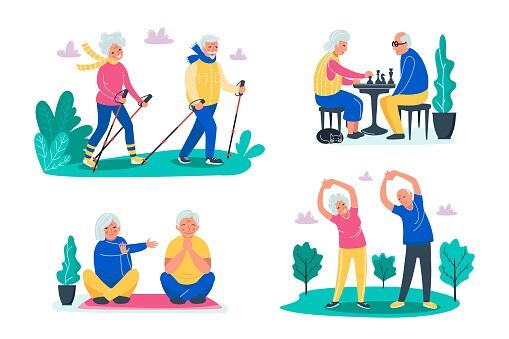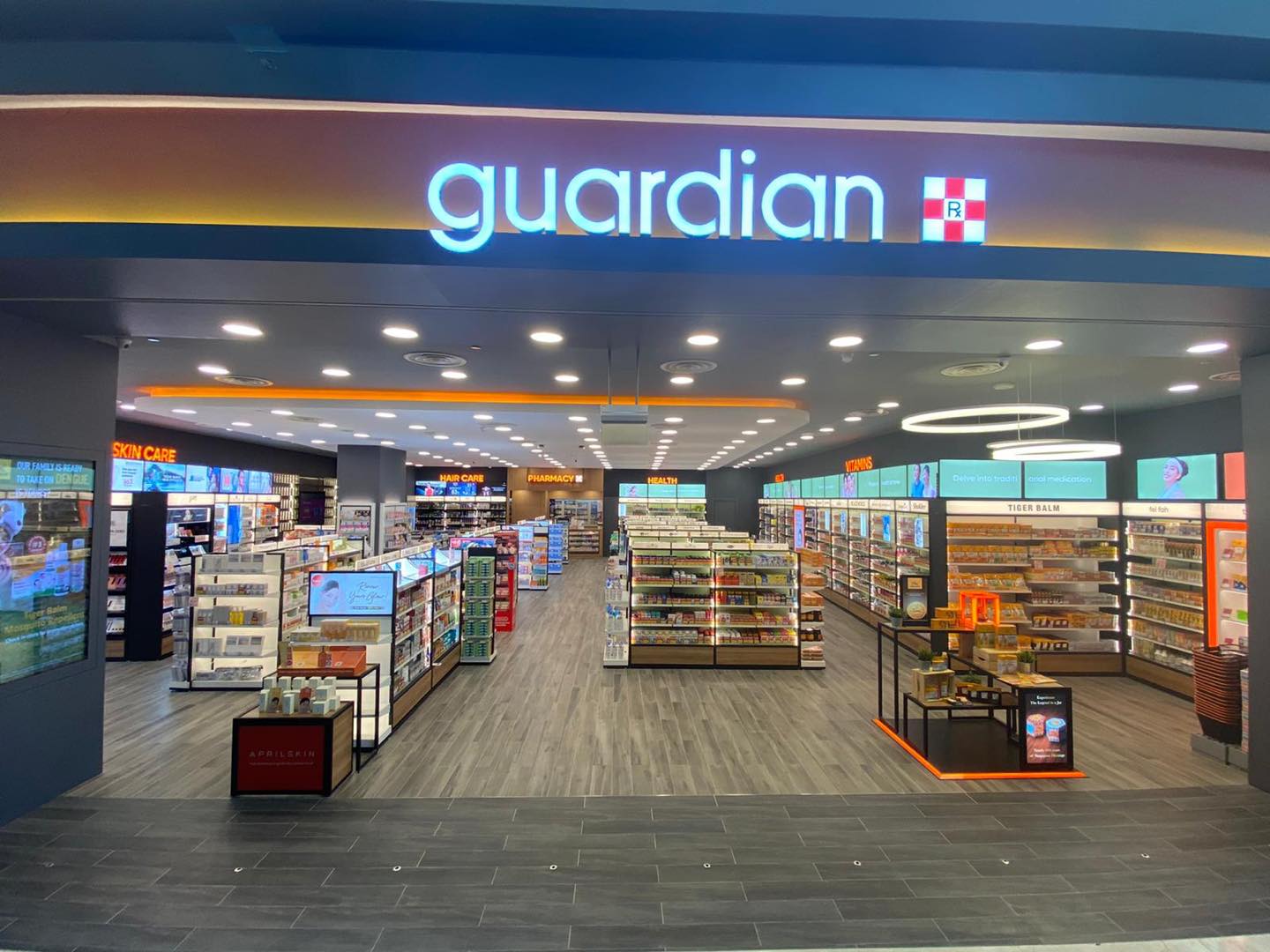Immune health: Stable, strong demand expected
Immune health will continue to see a stable and strong consumer demand in the next year, as consumers continue to prioritise immunity amid the pandemic.
This is according to GO Healthy, which said it saw a significant lift in the sales of its immune products last year. Examples include its GO Vitamin C, GO Vitamin D3 and GO Zinc Complex products.
“For 2021, we are looking to strengthen our positioning with the key immunity products, with a specific focus on the ingredients that’re popular during the pandemic, whilst maintaining our high strength, convenient 1-A-Day brand positioning,” Kevin Anstiss, marketing and innovation director said.
Elsewhere, Japanese firms are testing and developing immunity products with ingredients such as probiotics, turmeric and vitamin D.

One example is Kirin’s iMUSE range, consisting of beverages, dairy and supplements containing the Lactococcus lactis strain plasma probiotic, was recently registered with a Food with Function Claim (FFC) in Japan, for its ability to maintain immune function in healthy people.
From January to October 2020, sales of its iMUSE range nearly doubled compared to the previous year.
“The immune system has not been the main trend, but with last year's COVID-19 pandemic, interest in the immune system is increasing but after that, it will depend on the impact of COVID-19,” Shuichi Maeda, senior manager at Kirin Holdings Health Science Department said.
Melatonin booming, GABA, CBD, Kava up-and-coming in stress, sleep supplements
Melatonin has been identified as the booming ingredient for stress and sleep improvement for GNC China.
The company is also developing products beyond the usual tablets and capsules form.
Of interest is its Sleep Drink, also known as 小魔瓶(Xiao Mo Ping) in Chinese – a 30ml melatonin beverage shot launched in March 2020 in China.
The product, containing melatonin, GABA, L-Theanine, claims to decrease anxiety, facilitate deep sleep and a ‘delight new day’.
“The biggest difference between GNC and other brands is that we are focused on the sleep improvement portfolio, especially on the use of melatonin,” said Samuel Huang, GM and CEO of GNC China.
While melatonin is commonly consumed by the elderly in the West, it is something targeted at the younger generation in APAC.
“Melatonin production decreases with age, as such, it is mostly consumed by the elderly in the West.
“But it is different in China and APAC, young people tend to play with their phones, use Line, Whatsapp, WeChat before they sleep, they might not be able to fall asleep, or are feeling anxious or work stress,” he said.
In Japan, the firm mellow said cannabinoid (CBD) and gamma-Aminobutyric acid (GABA) were the upcoming ingredients in the cognitive health space.
The company already has a CBD soda and CBD supplement in its portfolio.

Co-founder and COO Kohei Hosono said Japan and South Korea were the biggest markets for cognitive and mental health related supplements due to high suicide rates.
“While there are talks of a vaccine soon, the extermination of COVID-19 will still be a long process and people will need some help maintaining their mental health in the meantime,” Hosono said.
Angus Brown, CEO and co-founder of New Zealand-based nootropic company Ārepa agreed, adding that CBD will continue to grow.
“CDB will continue to grow in markets as new legislation comes through and then it will turn into an ingredient like dairy, as in everyone will have it and use it. Adaptogens are interesting as well as mushroom technology.”
Ārepa currently uses New Zealand blackcurrant, New Zealand pine bark extract, and L-theanine in its nootropics, which are found in a variety of formats such as drinks, powders and capsules.
“Our focus is to move the trend away from the niche of nootropics being found in a capsule format to more everyday 'brainfood' products such as beverages and breakfast food.”
The firm has committed over NZ$2 million (US$1.4m) for research in 2021, in the areas of neuroprotection, immunity, focus and mood.
While the focus is on Australia and US at the moment, Brown is also exploring joint venture opportunities in Japan and South Korea.
GO Healthy also expressed interest in growing this category.
It said the category unit sales have increased by almost 6 percent with the value increasing by over 6.5 percent against 2019, against the backdrop of a falling VMS market.
“We use a range of different herbs from across Western, Ayurvedic and Pacific medicines that have traditionally been used to calm minds and induce sleep.
“One that has risen in popularity is KAVA, there was a period where KAVA’s safety was questioned but this was shown to be due to the quality and adulteration,” said Anstiss.
To ensure the optimal effect, the company has focused on a quality extract that has been standardised to contain 60mg of kavalactones, which have been shown to interact with GABA receptors, the neurotransmitters dopamine, and serotonin.
The company also uses the adaptogens siberian ginseng and ashwagandha for its stress products. An example is its GO Ashwagandha 8,000 Stress & Energy 1-A-Day.
Healthy ageing: Muscle, brain health at the forefront
Muscle and brain health are identified as the key focus for healthy ageing, according to Nestle Health Science Greater China.
Maintaining mobility and memory are often the key concerns for seniors, and thus, avoiding muscle loss and maintaining cognitive function are crucial to them.
“Sarcopenia, which is the term for muscle loss, is a real threat to the independence of older people. Nutrients and good sources of protein will help to keep or build muscle and strength,” said Cecily Gu, Business Executive Officer of Nestlé Health Science Greater China Region.
To tackle the concerns, Gu said the company has launched products such as BrainXpert – a product made of encapsulated medium chain triglycerides mixed with protein.

It was found to have a positive effect on individuals with mild cognitive impairment.
She pointed out that Chinese seniors prefer traditional herbal based functional foods as well as dosage formats such as powder and small beverage shot.
“They like powders which can be put into tea, soup or any food.
“They prefer small bottles, for example, the 20ml, 30 ml shots are very popular – it’s a small volume but it has a lot of power behind it.”
Flavours wise, she said consumers prefer products which were not sweet and creamy.
“They prefer natural flavours and don’t really like artificial ones,” she said.
Beauty-from-within: Anti-glycation, skin-detox, hydration the focus
Anti-glycation, skin-detox, and hydration has been identified as the trend for next year, said GNC China.
Huang said anti-glycation was already one of the hottest beauty-from-within function for this year.
“Next year, other than anti-glycation, we will have quite a number of new product line, including skin detox, skin hydration, and the use of hyaluronic acid to boost the skin’s moisture,” he said.
He added that the trends in the beauty-from-within portfolio has been changing rapidly.
“In the last few years, it has advanced from skin whitening to boosting skin moisture, anti-wrinkle, then the use of collagen, and then to the use of hyaluronic acid.
“Recently, it is about anti-glycation, [which is] to resolve skin dullness by addressing skin metabolism,” he said.
One of the company’s latest beauty supplement launch is Almighty Beauty Drink, also known as “小仙瓶” (Xiao Xian Ping) introduced in March 2020.

The 30ml beverage shot contains Agatri – a herbal ingredient, said to maximise skin elasticity, anti-wrinkles, and moisturises, developed by South Korean firm Cosmax NBT. The drink also contains 35,700mg of collagen peptide-optima.
Huang revealed that Almighty Beauty Drink and Sleep Lite have the highest repeat purchase rate across the firm’s entire range. Repeat purchase rate for both products is about 30% to 40%, while that of the traditional line is about 10% to 20%.
Elsewhere in Australia and New Zealand, GO Healthy said healthy skin was associated with a youthful, tanned, and a free from blemishes look.
“What is common across the ANZ and Asian markets however, are the moisturizing, anti-aging, anti-wrinkle and blemish free consumer requirements,” said Anstiss.
Anstiss said the challenge for nutricosmetics was proving product efficacy in a short time.
“As oral supplements are generally slow acting compared with exterior skin care products, consumers generally struggle to see the difference and may not keep up with the nutricosmetics regime.”
Interests in meal replacements grow, especially in China
Another trend to watch is the meal replacement market in China.
While meal replacements are typically known elsewhere as drinks, bars, soup and others as a substitute for a solid food meal, the awareness is still at its infancy in China.
China’s meal replacement market is categorised into narrow and broad, according to Bo En, founder and chief test officer of Ruffood – a China-based meal replacement company selling solid, liquid and powdered convenient and nutritious products.
Bo explained the narrow market caters to specific functional needs such as weight loss, while the broad market is geared towards overall diet management.
In China, meal replacements in the narrow market is huge, Bo explaining that “consumers favourite function is weight loss, which is the main reason for most consumers to choose meal substitutes that are typically lower in calorie and fat.”
On the other hand, the awareness of meal replacements for overall diet management, with complete nutrition and reasonable calorie products is still in the infancy stage in China.

However, Bo said as people’s lifestyles becoming increasingly hectic, such products would offer a convenient and nutritious option. It would be suitable for the masses not looking for weight management functions.
Another company in the space is ffit8, a China-based company producing protein bars for the younger generation.
Zhang Guangming, founder and CEO of ffit8 said: “Protein bar consumption in China is significantly different from US or Western markets where they are mostly targeted for sports nutrition or supplementation. In China, protein bars have progressed into general consumption for the masses, even as a meal replacement in certain cases.”
Currently, most meal replacement products are in the powder format, because of its simpler production and formulation. However, convenient and unique formats would likely attract younger consumers, in applications such as bread, yoghurt and cereals.
For Ruffood, it has been exploring shakes, while ffit8 has focused on creating a bar format.
Recently, Japanese firm MGH developed a sea cucumber energy bar in jelly format. Sea cucumber is a delicacy in Chinese cuisine, recognised for its nutritional content of amino acids, vitamins and contains zero fat. However, preparation of sea cucumber is a time-consuming process, so the firm created an instant product suitable for children to elderly. The firm recently exported the product to China.
In meal replacement products, protein will continue to be a key ingredient, as Zhang highlighted a lack of protein in the average diet in China.
Bo said the next trend might be the use of plant-based protein ingredients. “Plant-based ingredients which protects the environment and good for health will be a potential food material. With the improvement of taste and lowering costs of plant-based ingredients, we believe that it will be accepted by more public groups.”
Bo’s advice for brands wishing to enter the meal replacement space in China would be to understand the local culture, consumer preferences and local food regulations.
“Especially in China, there are great differences in eating habits among different regions, so we must adapt to the needs and preferences for product development and promotion.”




